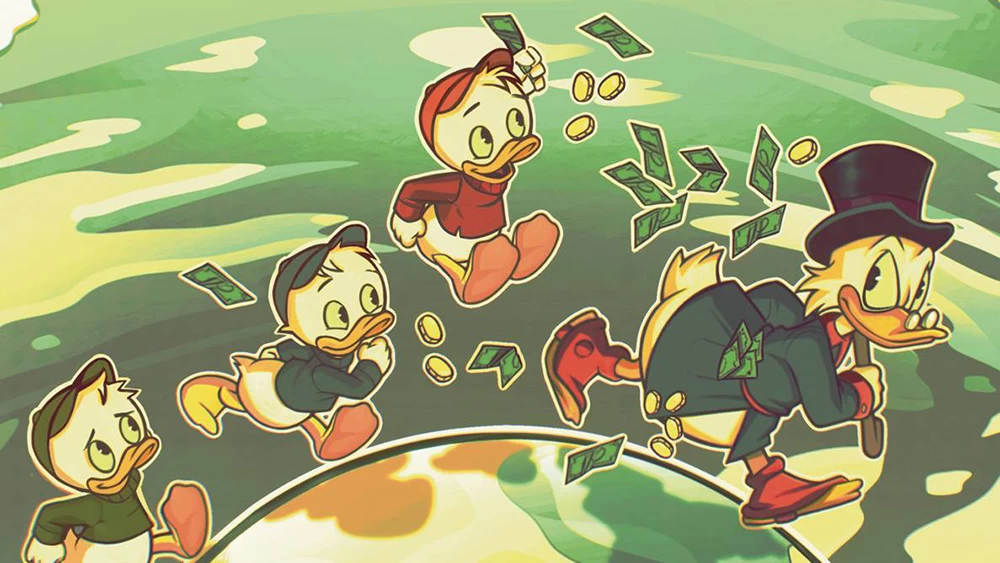If you take a moment to research this hobby—and you have enough time to do that, right?—you’ll find a report from the Toy Industry Association saying that games and puzzles pulled in $2.4 billion during 2009. That’s a good chunk of money. I could easily cover all the material needs of my toddler and cats with that kind of cash. But just for fun you can see what the videogame industry made over the same period: $19.7 billion.
That’s a whole lot more cat toys.
And that’s a lot of people buying games.
So when you get up from your office chair to get coffee (or Red Bull, or whatever) and walk past your coworkers, look for sore thumbs and paper cuts because you’re probably passing game players. And that’s assuming that you don’t see Bejeweled (I almost wrote Bejowled, but that’s a different topic) or Farmville open on screens.
I bring all these strange topics up because we call ourselves gamers in a world of humans who are absolutely crazy about playing games. It’s not like we’ve decided—like my uncle—to build steam engines (yes, working steam engines. Little ones). Or fletch our own arrows. Or build scale-model airplanes. Those would be niche hobbies. Our own hobby is an activity pursued by pretty much everybody and by every civilization—and pre-civilization—that ever flourished on the planet. Johan Huizinga way back in 1938 called humans “homo ludens:” man the player (and let’s go ahead and include women in this definition).
Yet only a certain subset of us step up (or sit down, I guess) and admit to the fact that we like games. We’d rather play a game than fletch arrows or change the oil in our cars. Perhaps more than shower, but I’ll leave the stereotypes for later. Why is it so hard to claim this status as homo ludens? Not for this audience—I know how y’all roll—but for the rest of the cube-dwellers playing Mafia Wars on Facebook?
I can think of some easy answers. The marketing geniuses at various toy and game manufacturers sold games to kids, and kids only, during the baby boom’s early years (only 3M tried to market games to the broad swath of the boomers as they reached adulthood, and we can thank that company for inspiring young European game designers, but I digress). I can remember wave after wave of game commercials as a kid (especially leading up to the winter holidays), but I remember comparatively few games for adults outside of traditional games (card games, chess, etc). In short, games are for kids.
As a corollary to “games are for kids,” they don’t make money. They don’t leave an object for sale or admiration. And learning new rules can be difficult. It’s easy for someone who fishes to invite friends over for a fish fry, but a gaming enthusiast can find it difficult to draw friends over to play games—and it’s difficult to play boardgames alone (try a solo game of Vegas Showdown. Or Risk, for that matter.).
I know that I’m collapsing two different categories of gaming, but I think the point still holds: human beings love to play games. Always have, always will. So when someone raises an eyebrow, or looks off into the distance over your shoulder when you say that you love to play boardgames, just understand that they’re lying to themselves if they say they don’t.
And then ask how much they spend on cat toys.
- Titan Comics for February 21st, 2018 - Feb 17, 2018
- The Gardeners and the Panda?: A Review of Takenoko - Jan 25, 2012
- You Made a Time Machine Out of a DeLorean? Back to the Future – The Card Game Reviewed - Jan 8, 2012










I'm sure everyone will soon see why we're excited to have James join us as our first contributor at large. You'll find he provides an extremely insightful look at our wonderful hobby.
Check out more of his writing at http://riverofplay.typepad.com/forestofgames.
Jeff,
Thanks for the kind words. I'm glad to be part of the Gang.
Now I have to go chase down cat toys…
In some of the poorer countries I've lived in, adults playing games is a much more normal activity – some traditional local games, but also chess, draughts and cards. We used to spend hours in the pub playing a Uno-style game with a pack of playing cards. Probably this is mainly because there weren't alternatives such as watching TV or playing on a computer. So I suspect the general view in Western society that games are for kids is a cultural thing, quite possibly as you suggest foisted on us by advertisers, rather than anything intrinsic. What I find slightly odd is that people who would throw their hands up in horror at the thought of learning the rules to a new boardgame will cheerfully devout hours and hours to playing and learning the ins and outs of a new computer game. Something to do with learning curves, and that you can enjoy playing whilst doing the learning, whereas it has to be said the first time you play a new boardgame is not always that enjoyable, especially if you have to do it from reading the rules yourself rather than have someone teach you. My brain almost melted learning Reef Encounter!
Ed_the_Red
Ed,
You've got some great points. I know a lot of people who can't be bothered with videogame rules; they just learn as they go. They'd be angry if they had to learn any rules beyond the opening tutorial. Thanks for the comments.
And I've really got to get someone to teach me Reef Encounter.
James
Good article. It's rare to find someone who doesn't like games. However, I think it's somewhat silly to talk about games as a broad category. The enjoyment from a game like Apples to Apples is a lot different from the enjoyment from a game like Caylus. We gamers liking games like Caylus is very much out of the ordinary.
Brian,
But why not talk about them broadly? I know people who will deny their interest in games yet play Bejeweled by the hour (I shudder), and it's interesting to consider how that kind of split happens and why. And then we can move on to your suggestion and work out who likes to play what kind of games. Like movies or novels, games are a broad category that can still be discussed usefully. But if we want to put any weight on it, then, yes, we need to start considering the smaller aspects. Thanks for the comment!
I enjoyed the article. Last week, while visiting one of the WalMart superstores in our area, we noticed a good deal of construction and remodeling in the toy department. An employee told us that they were reducing the size of the department by two-thirds. The reason? Toys don't sell well anymore. Video and video game sales are eclipsing traditional toy sales to the point where retailers are scaling back their toy departments.
So while we love our games, there are a whole lot more of us playing "Bejeweled" than "Settlers of Catan".
Well, the point of this article seemed to be "gamers are no different from non-gamers, because everyone plays games." But we are different, because not everyone plays brain-burner games. If someone raises an eyebrow when I say I like a game like Agricola, it makes sense. It's a game that does not appeal to most people. It's not "normal" (not that there's anything wrong with that, of course).
It's certainly true that not all "gamers" like the same types of games, but I can't help but think that one's culture, and it's norms, play a big roll in that. Certain games are popular in differing regions of the world, just as regional foods are. Do we, as humans who live in the same area, have different tastes, or do we just like what we know?
Brian: I'll point to David's and Al's responses and suggest that the 'homo ludens' tag that Huizinga pinned to us is, as they say, non-trivial. I'd suggest that calling humans 'gamers' is like calling humans 'eaters' (to pick up Al's metaphor), the category is that important. To extend the metaphor, some of us are gourmands and some, well, aren't. And there's a large continuum in taste. I'd argue that we are the gourmands; we have highly developed tastes and expectations that not many people share. But humans do like to play games. (And, yes, the food metaphor is flawed–survival is a serious issue, here–but a metaphor built around art, expression, and making-special would take too long!)
Al: Great question. My first impulse is to say that we like what we know. As Brian points out, not everyone likes These Games of Ours, and I think I'm not alone in not growing up with a lot of interesting games in the house. So I think we can develop our tastes and become more sophisticated players.